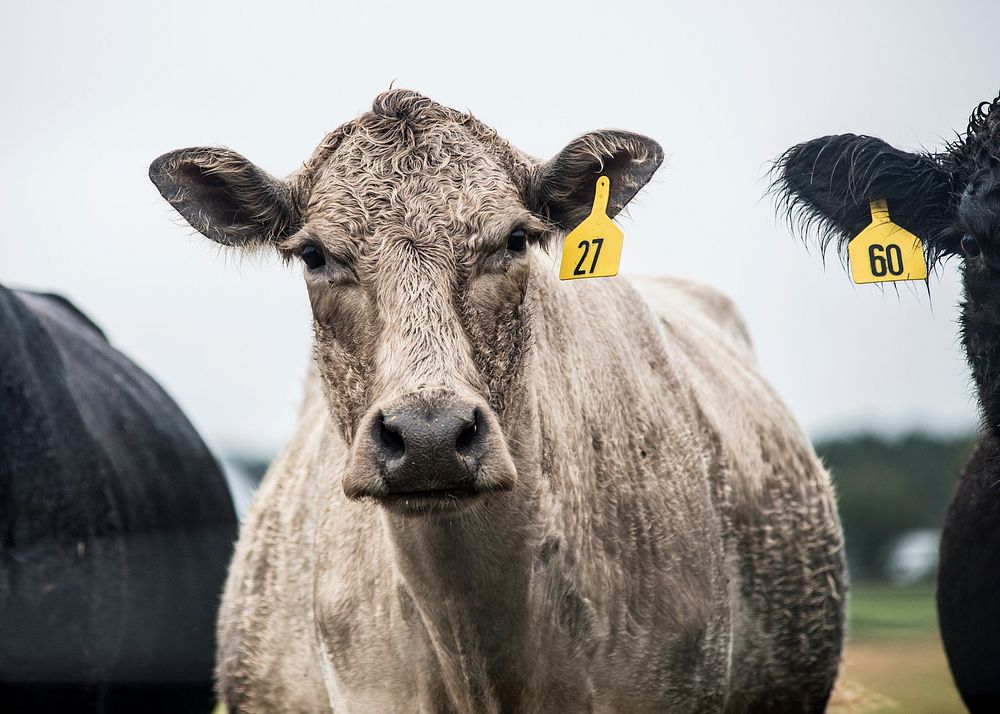
Livestock at Doug Jernigan Farms, a three-generation family farm and employer who, a few months earlier, refinanced a first of its kind in the nation, swine-turkey waste to renewable energy system (RES), with the assistance of the U.S. Department of Agriculture (USDA) Rural Development (RD) Renewable Energy for America Program (REAP) loan guarantee in Mt. Olive, NC, Tuesday, Nov. 10, 2015.
Typical systems separate methane gas for energy, solids are disposed or repurposed and liquids are cleaned. This new system addition takes the watery manure effluent to a new and as Mr. Jernigan say’s “prolific profit” producing state through savings and sales. “There is an opportunity for the farm to make money doing a good thing for the environment.”
The system handles about 75,000 gallons of swine and turkey waste effluent each day; piped to a series of tanks, and mechanical equipment that separates solids, and liquids. The current treatment facility biologically removes ammonia nitrogen with bacteria adapted to high-strength wastewater; removes phosphorus via alkali precipitation; and reduction emissions of odorant compounds, ammonia, pathogens, and heavy metals to the environment. The water is cleaned for reuse in the swine and turkey operations that wash more manure into the cycle of the system.
The new methane reactors (under the framework of what will be a C-span structure) use an endothermic gasifier that heats the waste solids to very high temperatures to the point that they release gases. The clean methane gas will fuel an engine that turns a 300KW electrical generator producing electricity; ethanol will help fuel farm equipment, and resulting potash solids can be used or sold for agricultural fertilizer. Excess amounts of electricity, that the farms cannot use, will be sold and transmitted to the local energy company, for use by residents and businesses; renewable energy credits (REC) are sold to a different energy company.
With a system that eliminates all ammonia and other odor creating compounds, Mr. Jernigan says, “What I’m doing is good for the environment; it’s good for the farm in the respect that you’re getting rid of waste that you’re creating in a high-tech way. There’s no footprint. It’s just gone.”
Doug and Aileen are lifelong farmers and they have three grown children that work in the farm operation as well. Their farm currently operates a 21,600 finishing farm operation, an eight house turkey operation and a 250 head cow /calf operation. The farm also consists of 2,400 acres of row crop production (cotton, corn, soybeans and wheat).
Doug Jernigan’s grandfather started farming here in 1941, and he continues the tradition with his business that began in 1974.
In talking about the greater potential of this technology and what others should consider, Jernigan says, “I see it as a win-win thing.”
For more information about USDA, RD and REAP please see: www.usda.gov, www.rd.usda.gov, and www.rd.usda.gov/programs-services/rural-energy-america-pr...
USDA Photo by Lance Cheung
*The treatment system (without the methane reactor) was documented to remove, on a mass basis, approximately 99% of total suspended solids, 98% of COD, 99% of TKN, 100% ammonia, 100% odor compounds, 92% phosphorus, 95% copper, and 97% zinc from the flushed manure. Fecal coliform reductions were measured to be 99.98%
. Original public domain image from Flickr